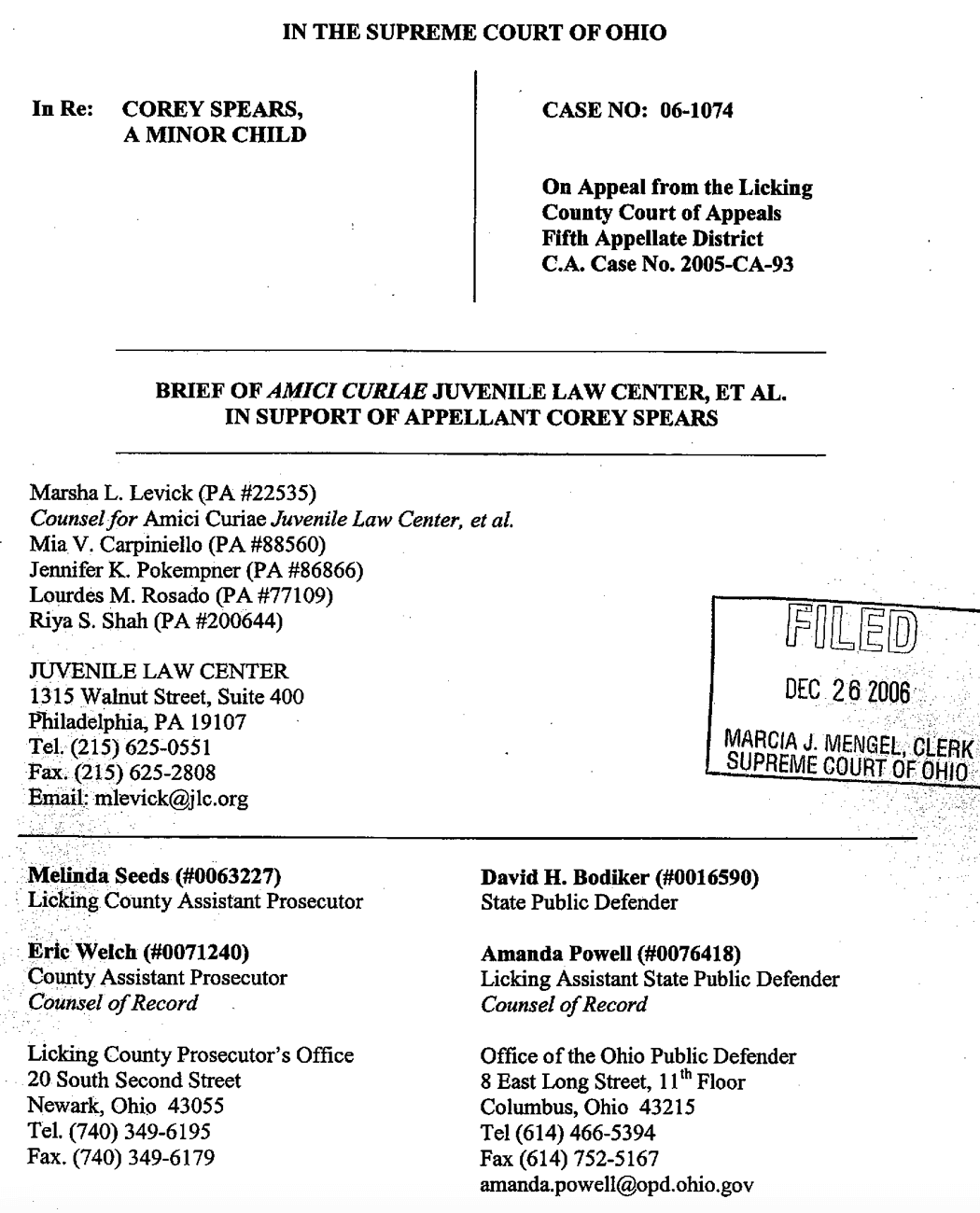
Summary of Argument
Waiver of the right to counsel at any stage of a delinquency proceeding jeopardizes fundamental rights and exposes youth to grave and sometimes unforeseen lifelong consequences. The child "requires the guiding hand of counsel at every step in the proceedings against him." In re Gault, 387 U.S. 1, 36 (1967) (quoting Powell v. Alabama, 287 U.S. 45, 69 (1932)). Legal counsel serves a crucial role during the pre-adjudication stage of a delinquency case. Attorney representation is especially important during the adjudicatory stage because of the potentially far-reaching consequences of adjudication. Legal counsel serves a crucial role at disposition. Legal counsel serves a crucial role even after disposition, during the post-disposition phase of a delinquency case. Legal representation is crucial in the appeals process.
Parents cannot fulfill the critical role of counsel for children subject to delinquency proceedings due to the potential conflict of interest between parent and child and the inherent tension between the duties of a parent and a legal counselor. Consultation with and assistance of counsel is essential to the exercise of due process rights. Meaningful exercise of a youth's due process rights requires that the youth receive the advice of an attorney and that youth, not their parents, decide whether to waive rights. Potential conflicts of interest between parents and children prohibit parents from effectively representing their children's rights when deciding whether to waive counsel. Parents cannot act as legal counsel due to the inherent tension between parenting duties and the duties of an attorney. Potential conflicts of interest between parent and child in delinquency cases prevent the parent from providing effective legal counsel to the youth. Youth's tendency to conform to the wishes of authority figures reduces parents' effectiveness as a protective factor in their interaction with the delinquency system.